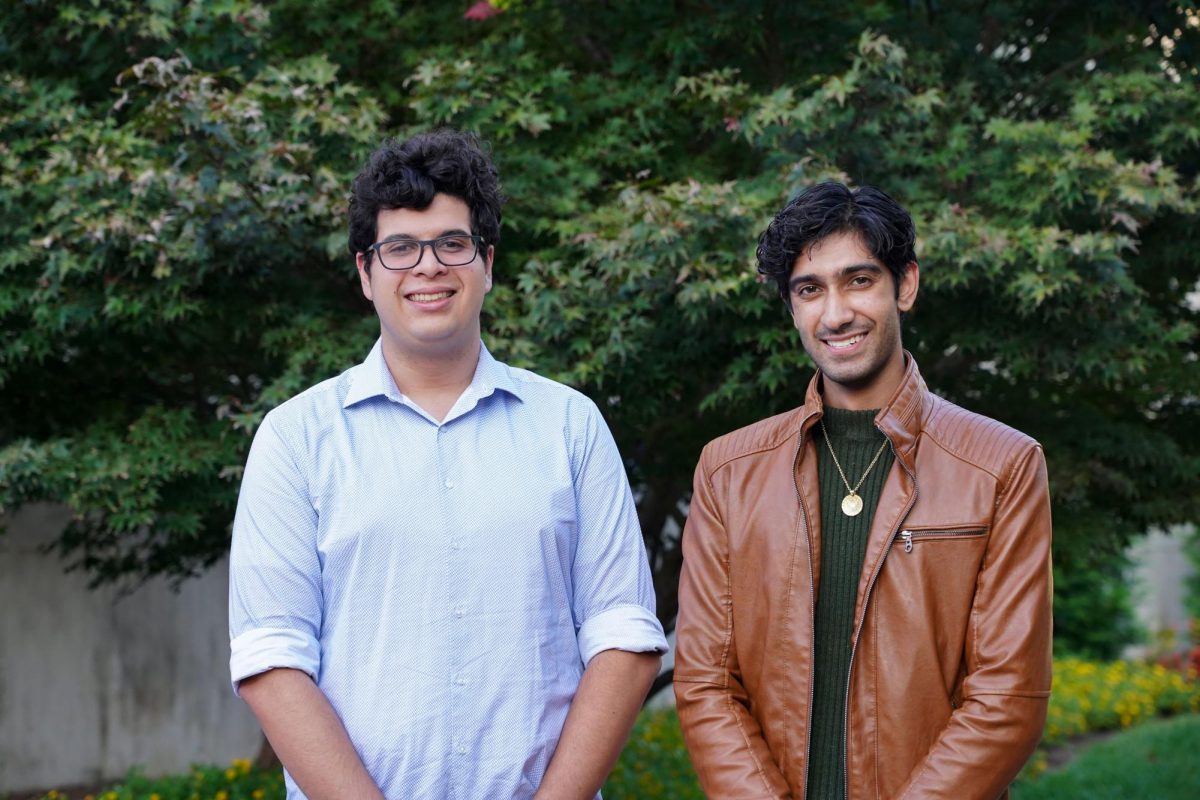Residence halls will go head to head in a composting competition led by the Student Association’s Sustainability Committee this month.
SA Sen. Dan Saleem (CCAS-U), the chair of the Sustainability Committee, said the residence hall with the highest percentage of students who donate their compost throughout the month will win a prize to be announced Oct. 31. Students involved with the planning of the event said they hope the competition will increase the number of students composting at GW.
Students living on campus can bring their compost to Kogan Plaza during the month of October on Mondays and Tuesdays from 1 to 4 p.m., Thursdays and Fridays from 9 a.m. to noon and Saturdays from 11 a.m. to 2 p.m. The compost collectors will write down the names and residence halls of the donors, tallying the amount of compost from each hall. The event organizers added that they encourage those who can’t join the competition, like off-campus students and faculty, to still bring their compost during collection periods.
After the tournament, student employees working for the Office of Sustainability will continue to offer composting at drop-offs throughout the semester and at GW events.
Saleem said he’s hoping the competition contributes to a “major” increase in the amount of food scraps composted. Over the summer, the office reported it collected 1,664 pounds of compost from students, faculty and D.C. locals after collecting 3,344 pounds in the spring.
“Climate change is a thing, and there are some people who don’t believe that,” Saleem said. “We’re here to confront the facts of ‘Hey, this is a problem in our world, not just our University, and let’s do our part to fix it.’”
Saleem said he plans to create weekly posts on his senate Instagram account throughout the month, updating which residence halls are in the lead.
Saleem said the five-member committee met in July with Office of Sustainability Director Josh Lasky, Sustainability Associate Colin O’Brien and Director of the Sustainability Minor program Tara Scully to discuss their plans for the competition. Saleem said everyone was “receptive” to their idea, and the office hopes to host more events with the committee throughout the year.
“All we have to do is facilitate and organize how residence halls will be accounted for,” Saleem said. “The sustainability office has taken a huge step in helping us with that.”
A spokesperson for the Office of Sustainability did not immediately return a request for comment.
Saleem said there will not be an additional composting location on the Mount Vernon Campus, but Vern residents can participate in the competition by bringing their compost to Kogan Plaza for counting.
“I feel like it would be easier to have somewhere to do it here rather than having to take the Vex and go all the way there,” said Alicia Molock, a Vern resident.
But Saleem said there are people from the committee, including himself, who would be “happy” to help students bring their compost to Kogan Plaza for them.
Sen. Dante Rodriguez (SEAS-U), the vice chair of the Sustainability Committee, said in a message that the committee has been working with the Residence Hall Association to promote the competition by sending emails to residents and hanging up posters reminding students to participate.
“Working with RHA is really key to this process, as the competition revolves around the different dorms competing,” Rodriguez said. “It will allow us to raise awareness for the competition and drum up interest right where people live.”
Rodriguez said the committee urges students to check that their food is compostable before donating it — contaminants like fruit stickers, rubber bands and plastic wrap should not be composted.
RHA President Vero Famadas said in a message the association is in the “beginning stages” of working with the Sustainability Committee. They said RHA plans to begin promoting the competition at their general body meetings throughout October since Hall Councils were elected this month.
Shukthi Senthilraj, a junior studying cognitive neuroscience, said she had seen flyers for the competition in University Student Center elevators and wished the competition was getting more publicity. She said she plans on composting despite not living in a residence hall.
“I would do it because I do support composting,” Senthilraj said. “I’m an off-campus student so there’s no incentive for me, but I would still do it.”
Vijay Jayamani, a junior studying systems engineering, said he plans to bring his compost to Kogan for the competition after hearing about the event from an advertisement on campus.
“It’s just important for everyone to look out for the environment as well as to enforce a more sustainable campus,” Jayamani said.
Hannah Marr contributed reporting.





